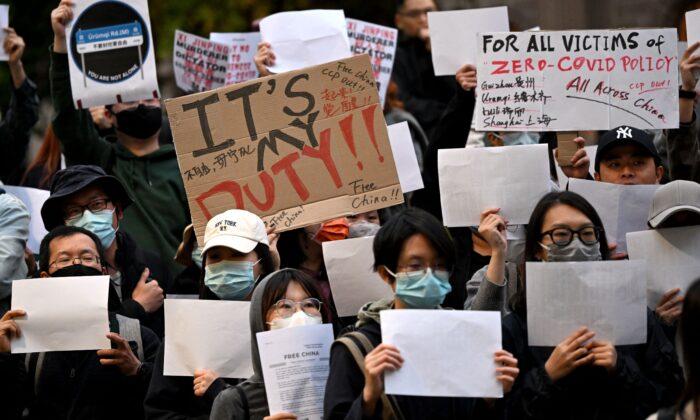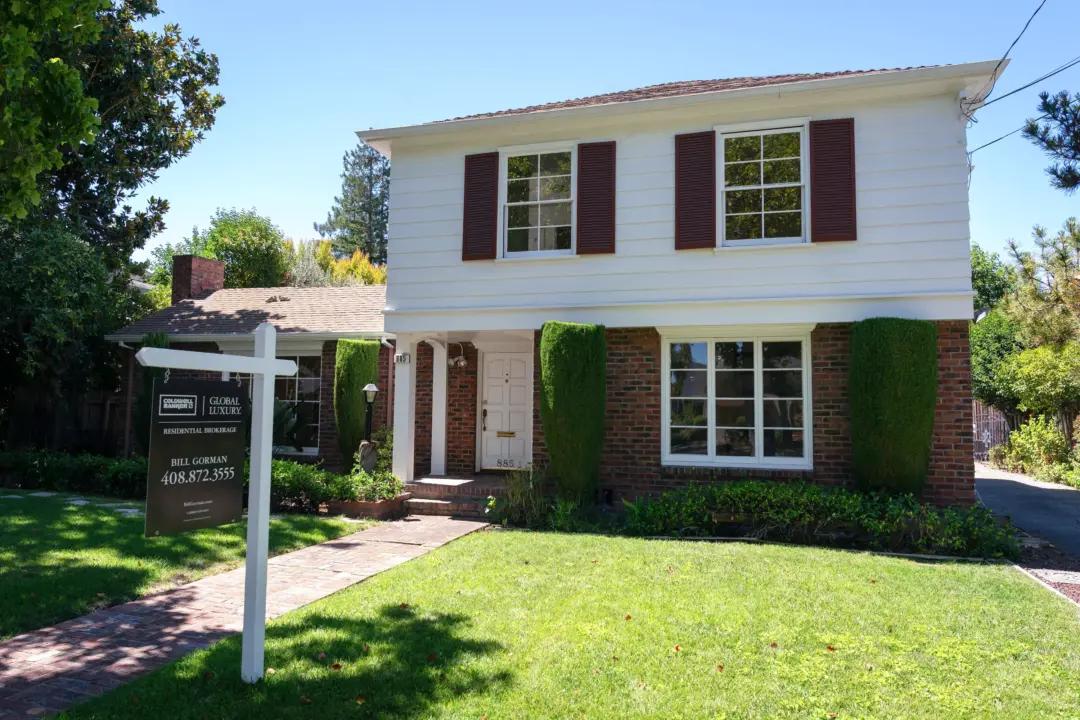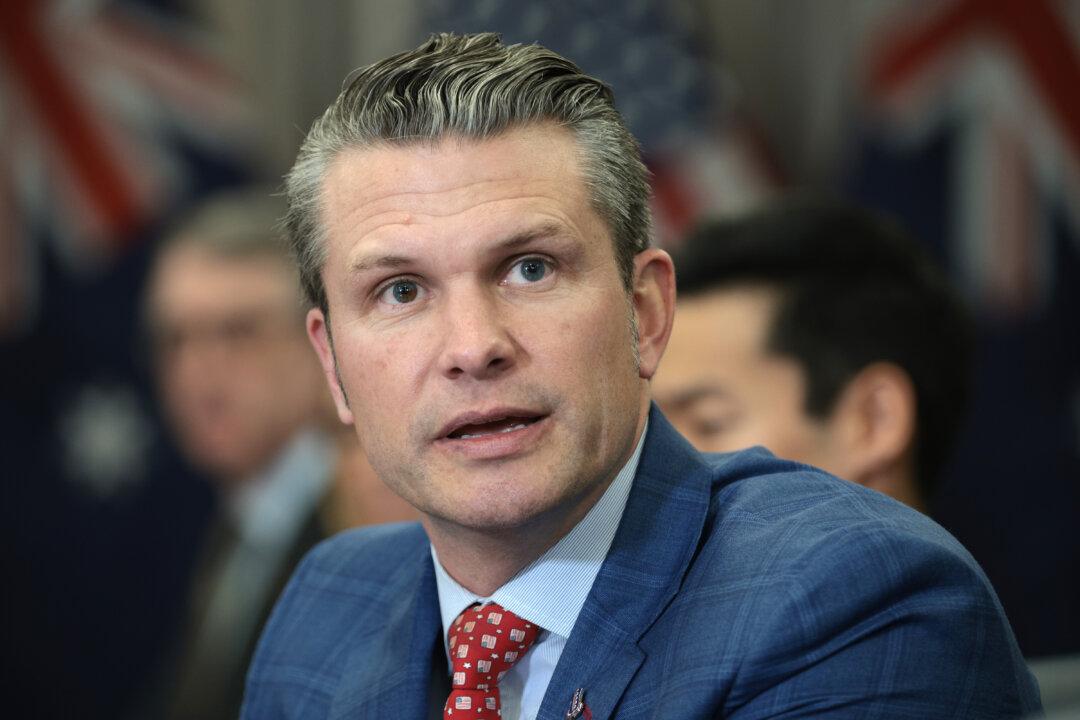Protests against the Chinese communist regime for its harsh COVID-19 lockdowns and other severe measures have rocked the nation, with demonstrators from different countries joining in to show support.
Protests in China were triggered by the horrific deaths of at least 10 people in Urumqi, Xinjiang, who died due to an apartment fire. First responders were unable to reach the scene on time due to prevailing COVID-19 blockades and lockouts throughout the residential compound. After the video of the incident went viral on Chinese social media, it sparked outrage. In Urumqi, multiple protests broke out on Nov. 25, with residents demanding that the lockdowns be revoked. Authorities announced the loosening of restrictions the next day.
In solidarity with protests in China, small demonstrations and vigils have been held in cities across the world, including Sydney, London, Paris, and Tokyo, according to Reuters. The protests were organized by expatriate dissidents and students.
In Shanghai, hundreds of protestors gathered on a street late Saturday, with candles and vigils for those who died in the fire. Some called for the government to issue a public apology for the deaths.
“Actually in my heart, I also thought this way. But then when I went there, I found that the environment was such that everyone was very brave.”
On Sunday, protests erupted in Shanghai once more, with people demanding an end to PCR tests and insisting on their right to basic freedoms.
In videos from places like Guangzhou, Nanjing, and others, protestors were seen fighting against the police and dismantling barricades. In Beijing, demonstrations were reportedly held at 50 universities.
Protesters Raise Multiple Issues
Some of the solidarity protests held abroad also featured a focus on other human rights issues. In the London protests, demonstrators chanted slogans, “Stand with Xinjiang,” Stand with Tibet,” “Stand with Hong Kong,” Stand with Taiwan,” “Resist Dictatorship,” and “Resist Violence.”“We have spoken to some activists from Taiwan and Xinjiang ... We’ve agreed to refrain from (that),” he said. “We know that may alienate a lot of people.”
Meanwhile, the Chinese police are also suppressing the press. In Shanghai, a journalist from BBC was beaten by police officers and arrested briefly for covering the protests.
A journalist from Switzerland’s national broadcaster RTS was surrounded by three police officers on one occasion while covering the protests.
The journalist spoke on live camera that he was going to be taken away to the police station, according to Reuters. But after he identified as a journalist, the officers left.





